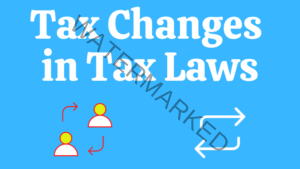In the Tax Procedures Act (2015), there are various terms used that relate to the application of tax procedures in Kenya.
(Post continues after the photo)

(Photo by WAKA)
Understanding of interpretation of the terms is important because of various reasons among them:
a. Proper application of the tax procedures.
b. Interpretation of the terms is used in the application of other tax Acts in the country.
c. Sometimes the day to day meaning of the terms is different from the interpretation assigned by the Tax Procedures Act.
d. Many tax assessments result from misinterpretation of terms.
e. Misinterpretation of the terms according to the meaning assigned in the Tax Procedures Act results in payment of extra taxes in the form of fines, penalties and interest.
[bha id=’https://www.bluehost.com/track/wakaguyu’ size=’190×60′ variation=’01’ align=’none’]
In the following section, interpretations of various terms used in the Tax Procedures Act (TPA) according to the Act are explained.
1. Accounting officer
In the TPA, the meaning of the term accounting officer is similar to that ascribed in the Public Finance Management Act, 2012. This means that to get the true meaning of the term, you must refer to the Public Finance Management Act, 2012. According to the Public Finance Management Act, 2012, the term means:
a. An accounting officer of a national government,
b. An accounting officer of a county government,
c. In the case of the Judiciary, the chief registrar of the Judiciary,
d. In case of Parliamentary Service Commission, the clerk of the Senate.
Above four are the meanings of the term accounting officer according to the TPA. Any other officer is not an accounting officer according to the TPA.
2. Advance assessments
This term means an assessment made by the Commissioner before the date when a taxpayer is expected to submit a return for a tax period. A tax return is the basis of a tax assessment. Advance assessments are covered under Section 30 of the TPA. In the advance assessments, various details are included among them:
a. Tax type for the assessment.
b. Tax period covered by the assessment.
c. Assessment number – every assessment has a number.
d. Principal tax amounts assessed.
e. Due date for payments for the principal tax.
f. Tax objection procedures to be followed.
g. Tax fines where applicable.
Note that advance assessments do not include:
a. Tax penalties.
b. Tax interest.
3. Amended assessments
This term refers to a tax assessment made by the Commissioner after making changes or additions to the original or amended assessment. It also means an amended original self-assessment by the taxpayer. Original and amended assessments can be amended. Amendment of assessments is covered in Section 31 of the TPA.
4. Appealable decision
This term refers to two items:
a. An objection decision.
b. Any other decision made by the Commissioner under any of the tax laws in Kenya.
However, this term does not mean:
a. A tax decision.
b. Any of the decisions made in the course of making that particular tax decision.
The question is what is a tax decision. The Act defines a tax decision as:
- An assessment.
- A determination under section 17(2) of the amount of tax payable or that will become payable by a taxpayer.
- A determination of the amount that a tax representative, appointed person or director or controlling member is liable for under sections 15, 17 and 18.
- A decision on an application by a self-assessment taxpayer under section 31(2).
- A refund decision.
- A decision under section 48 requiring payment of a refund.
- A demand for a penalty.
5. Assessments
This is a broad term covering all tax assessments. Some of the tax assessments covered include:
a. Self-assessments by taxpayers.
b. Self-assessments by taxpayer’s agents on behalf of the taxpayer.
c. Default assessments by the Commissioner.
d. Advance assessments by the Commissioner.
e. Amended assessments by the taxpayer, taxpayer’s agents or Commissioner.
f. Any other assessment made under the tax laws in Kenya.
6. Authorised officer
This term means:
a. The Commissioner appointed under the Kenya Revenue Authority Act Cap 469 or
b. Any officer that the Commissioner has appointed.
The officers appointed by the Commissioner may be:
a. An employee of KRA or
c. A person seconded to work in KRA but working under the Commissioner, for example, police officers.
7. Authority
In the TPA, the term authority means the Kenya Revenue Authority (KRA), an organisation that was established under the Kenya Revenue Authority Act, Cap 469. This was done through an Act of Parliament in 1995.
8. Cabinet Secretary
This term Cabinet Secretary (CS) refers to the person who is in-charge of finance matters in the Kenya government. Ordinarily, this person is the one who is in charge of the National Treasury. The person may be the appointed CS or a CS in an acting capacity for example when the CS in-charge is removed.
9. Commissioner
This term means the Commissioner general who is appointed under the KRA Act. The person can be confirmed or in acting capacity. However, whether the person is an appointment or working in an acting capacity, it must be put in the Kenya Gazette.
10. Company
This term has several meanings. The term means:
a. A company formed under the Companies Act, (CAP 486) and Companies Act, 2015 in Kenya or
b. Any corporate body formed under any other law in Kenya.
c. Any corporate body formed under any foreign laws.
d. An association formed outside Kenya but incorporated in Kenya that the CS to the National Treasury has declared to be a company for purposes of the TPA.
e. An association formed outside Kenya but not incorporated in Kenya that the CS to the National Treasury has declared to be a company for purposes of the TPA.
Note:
We will cover other terms in the next 5 posts … that is why this post is numbered [1].
For any clarifications, get in touch through the email.
Our Call …. remember to subscribe to get our latest tax articles.
[bha id=’https://www.bluehost.com/track/wakaguyu’ size=’190×60′ variation=’01’ align=’none’]
(Disclosure: This website receives compensation from companies whose adverts appear here. We only promote products that we have used. We are an independent website and any opinions that are expressed here are our own.)
Feel free to send us tax and investments in Kenya questions or topics via email taxkenya@gmail.com that you would wish to be covered in this Website.
Disclaimer
This post is for general overview and guidance and does not in any way amount to professional advice. Hence, www.taxkenya.com, its owner or associates do not take any responsibility for results of any action taken on the basis of the information in this post or for any errors or omissions. Kenyan taxpayers must always rely on the most current information from KRA. Tax industry in Kenya is very dynamic.
©Wakaguyu Wa Kiburi
Email: taxkenya@gmail.com
Twitter: @taxkenya
Facebook: fb.me/taxkenya
Youtube: youtube/taxkenya.com shows



